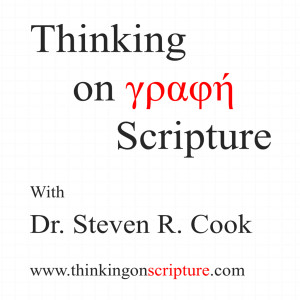
Sunday May 03, 2020
Zechariah 13:1-9
Zechariah 13:1-6 refer to events surrounding the second coming of Christ and the suppression of idolatry and false prophets. Zechariah 13:7 refers to the first coming of Jesus and His crucifixion; and, Zechariah 13:8-9 refers to God’s further cleansing of the land during the Tribulation, just before Messiah comes. Zechariah chapter thirteen opens with the repeated phrase, in that day (Zec 13:1, 2, 4), showing it is a continuation of chapter twelve, and refers to the eschatological events surrounding the Second Coming of Jesus. In that future time, God declares, “a fountain will be opened for the house of David and for the inhabitants of Jerusalem, for sin and for impurity” (Zec 13:1). This means the Lord will offer spiritual cleansing to Israel’s leadership and people in anticipation of the coming earthly kingdom. The Lord also states, “I will cut off the names of the idols from the land, and they will no longer be remembered; and I will also remove the prophets and the unclean spirit from the land” (Zec 13:2). Israel has a long history of idolatry, which was promoted by false prophets (in the seen world) and unclean spirits (in the unseen world). These will be removed from the land; again, in anticipation of the coming earthly kingdom. The false prophets will not have a place to hide, not even in their own homes, as parents, who are wholly devoted to God, will not tolerate spiritual dissent among their children (Zec 13:3). The false prophets will be ashamed of their false visions and will no longer try to present themselves as true prophets of God (Zec 13:4); but rather, will say they are lowly slave farmers (Zec 13:5). One of the marks of false prophets was the cutting of their flesh in an effort to excite their pagan deity (cf. Lev 19:28; Deu 14:1; 1 Ki 18:28). When asked about his wounds, the false prophet will lie and say “I was wounded in the house of my friends” (Zec 13:6). That is, the wounds were not self-inflicted, but inflicted by a friend, perhaps while horseplaying in his youth. The subject matter suddenly changes, as Zechariah prophecies about the first coming of Jesus, specifically with regard to His substitutionary death. God states, “Awake, O sword, against My Shepherd, and against the man, My Associate” (Zec 13:7a). Here, God the Father calls for a sword—an instrument of death—to be raised against His Shepherd and Associate, which is Jesus, His Son. This verse is similar to that of the Suffering Servant in Isaiah 53, where God the Father crushes Jesus in our place (Isa 53:4-10; Acts 2:23; 4:27-28); a crushing that Jesus willingly accepts, as He lays down His life for us (Matt 26:42; Mark 10:45; John 10:11, 15). The Lord further states, “Strike the Shepherd that the sheep may be scattered; and I will turn My hand against the little ones” (Zec 13:7b). We know that Jesus’ disciples were scattered after He was crucified (Matt 26:31, 56), and the reference to “the little ones” might be better understood as “the insignificant ones” who were judged by God for the wrong they inflicted on Jesus (perhaps alluding the destruction of Jerusalem in A.D. 70). Lastly, Zechariah seems to jump back to the future time of the Tribulation, in which two thirds of Israelites will be cut off, and a third will be spared to enter into the coming earthly kingdom (Zec 13:8). This remaining third, likely the believing remnant of Israelites at the second coming of Jesus, will be refined and tested through the fire of the Tribulation (Zec 13:9a). God says of these believing Jews, “they will call on My name, and I will answer them; I will say, ‘they are My people,’ and they will say, ‘the LORD is my God’” (Zec 13:9b). Israel, God’s covenant people, will, at last, be in a healthy relationship with the Lord as they enter into the earthly millennial kingdom with Jesus as their King.
Comments (0)
To leave or reply to comments, please download free Podbean or
No Comments
To leave or reply to comments,
please download free Podbean App.